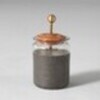Medicalising Electricity in the Dutch Republic, 1745-1789
DOI:
https://doi.org/10.51769/bmgn-lchr.9700Keywords:
electricity, medicalisation, boundary-work, electrotherapy, Musschenbroek, Barneveld, DeimanAbstract
This article sheds light on the processes and tactics used by eighteenth-century electricians in making medical electricity a legitimate remedy in the Dutch Republic. Electricity’s medical value was by no means self-evident in the years following 1746, when the first Dutch patient was treated with it. Understandings of its effects on the body were still unclear and judgements on the efficacy of electrotherapy varied. The subsequent four decades saw the development of various theories, practices, and instruments of electrotherapy across Europe and North America. This development has thus far been little studied in the context of the Dutch Republic, despite the Republic’s prominent role in the wider history of electricity. Understanding how electricity became a legitimate component of the Dutch materia medica provides an insight into the ways transnational scientific knowledge is translated in local contexts.
Dit artikel werpt licht op de processen en strategieën die achttiende-eeuwse experts op het gebied van elektriciteit in de Republiek der Zeven Verenigde Nederlanden aanwendden om de medische inzet van elektriciteit te legitimeren. De medische waarde van elektriciteit was geenszins vanzelfsprekend in de periode rond 1746, het jaar waarin de eerste Nederlandse patiënt met elektriciteit werd behandeld. Een duidelijk begrip van de invloed van elektrotherapie op het lichaam was er op dat moment niet en het oordeel over de effectiviteit ervan varieerde. In de vier daaropvolgende decennia werden diverse theorieën over, praktijken van, en instrumenten voor elektrotherapie ontwikkeld in Europa en Noord-Amerika. De bloei van elektrotherapeutisch onderzoek in de Nederlandse Republiek zelf is tot nu toe echter weinig bestudeerd, ondanks de prominente rol van de Republiek in de bredere geschiedenis van elektriciteit. Dit artikel reconstrueert hoe elektriciteit een legitiem onderdeel van de Nederlandse materia medica werd en biedt inzicht in de verschillende manieren waarop transnationale wetenschappelijke kennis in lokale contexten werd vertaald.
Downloads

Published
Issue
Section
License
Copyright (c) 2022 Floris Winckel

This work is licensed under a Creative Commons Attribution 4.0 International License.
Authors who publish with this journal agree to the following terms:
a) Authors retain copyright and grant the journal right of first publication with the work simultaneously licensed under a Creative Commons Attribution 4.0 International (CC BY 4.0) that allows others to share the work with an acknowledgement of the work's authorship and initial publication in this journal.
b) Authors are able to enter into separate, additional contractual arrangements for the non-exclusive distribution of the journal's published version of the work (e.g., post it to an institutional repository or publish it in a book), with an acknowledgement of its initial publication in this journal.
c) Authors are permitted to post their work online (e.g., in institutional repositories or on their website) prior to and during the submission process.
Authors are explicitly encouraged to deposit their published article in their institutional repository.











